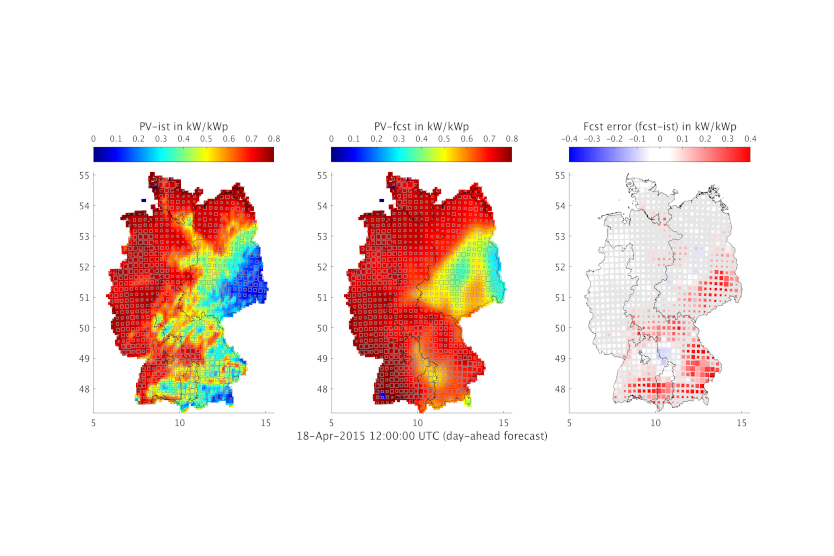
Illustration of simulation in project Prophesy: The image on the right shows the error margin of the predicted PV-output in Germany for a specific date (in kW/kWp) as derived from forecast (center) and actual output (left).
© Fraunhofer IEE, Projekt Prophesy
The energy transition is playing an increasingly central and significant role in Germany, especially with regard to energy generation from renewable energy sources. Due to the steady increase in the share of weather-dependent energy sources such as wind and solar energy, precise forecasts are indispensable if the energy industry is to be, and remain, efficient and sustainable.
In the PROPHESY joint project scientists from various project partners are developing a simulation system for simulating the energy system that will make it possible to create realistic series of forecast error time for forecast periods from 15 minutes to one week. This means that the data fed in from any individual plant or an entire region in Germany can be simulated. This enables network operators and market participants to obtain precise forecasts to facilitate their planning and decision-making processes.
The project, funded by the Federal Ministry for Economic Affairs and Energy (BMWi), will provide detailed information on the amount of storage and control capacity needed for the energy generated, as well as on necessary grid expansion measures or the provision of system services. In addition, conclusions can be drawn about the electricity feed-in, taking into account the balancing effects and the dependency on the geographical area as well as on the time of day. The University of Kassel, coordinator of the project, is developing targeted analysis methods together with the software developer enercast GmbH and investigating mathematical modelling. Based on the results, a scenario tool developed by the Fraunhofer Institute for Energy Economics and Energy System Technology (IEE) will be used to develop models that can be used to simulate future series of forecast error time.
The project will run for a period four years and receive a total of 1.1 million euros in funding.


